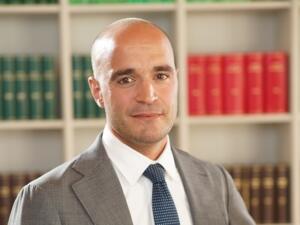Italian Supreme Court rules on Bolar exemption in Boehringer Ingelheim dispute
Pharmaceutical substance manufacturer Sicor has infringed a patent held by Boehringer Ingelheim and must now pay damages. The Supreme Court also clarified the application of the Bolar exemption in Italy. This could have an impact on exemptions for active pharmaceutical ingredients patented in other EU countries.
23 July 2024 by Mathieu Klos
In early July, the Italian Supreme Court found Sicor and its parent company Teva are infringing Boehringer Ingelheim’s patent and the associated SPC for the active ingredient tiotropium bromide (case ID: 2224/2022). Thus the judges upheld the rulings of the two lower courts.
In 2018 Milan Regional Court ruled that Sicor, an Italian manufacturer of active pharmaceutical ingredients, infringed Boehringer Ingelheim’s EP 4 18 716. The patent protects the active ingredient tiotropium bromide, a muscarinic receptor antagonist. Boehringer Ingelheim markets the active ingredient under the Spiriva brand. The drug is a long-acting bronchodilator. It helps to open the airways and is used to treat asthma.
At the time, Sicor’s application to invalidate the patent failed. The Court of Milan confirmed the first-instance infringement judgment in June 2021, but Sicor appealed again to the Supreme Court in Rome. As EP 716 and the associated SPC 849 have long since expired, the dispute primarily concerns damages owed by Sicor and Teva to the pharmaceutical originator.
The dispute is also of fundamental importance for the application of the so-called Bolar clause in Italy. The ruling may now have a signal effect for Europe.
Narrow definition
The EU introduced the Bolar clause to provide an exemption for patented active pharmaceutical ingredients for the manufacture of generic products. It allows research to be carried out on a patented active substance and test results to be submitted to the regulatory authorities, without the valid patent being infringed. A generic drug can then enter the market as soon as a patent expires.
The focus lies on the active pharmaceutical ingredients, or APIs, as the main part of the medications that produce the desired health effects. Without the Bolar exemption, clinical trials and market authorisation could only begin once patent protection has expired, which would de facto extend patent protection.
EU member states have long since incorporated the EU directive into national law. However, the current version is very narrowly defined and does not explicitly include the manufacturers of APIs if they do not also manufacture generic medicines themselves. Only large companies such as Teva can manufacture the APIs and also develop the generic drugs.
Thus this creates a problem for smaller generics manufacturers that want to submit generic medicines for market authorisation but cannot produce the APIs themselves. Although the EU Commission’s current reform proposal for EU pharmaceutical legislation aims to change this, it has not yet been adopted.
Broad but strict interpretation
The Italian Supreme Court is now the first supreme court in Europe to provide more clarity. In the specific case, the judges considered it to be a fact that although Sicor and Teva had produced the active ingredient tiotropium bromide and offered it for sale via their website, there had been no specific requests from generics manufacturers wanting to develop generic versions of the drug.
Following the Supreme Court’s ruling, it remains the case that manufacturers of APIs may not simply produce them and offer them on the market. Nevertheless, the court decided in favour of a broad interpretation of the Bolar exemption.
This means that third parties will also be able to invoke the exemption and produce APIs in future. However, the court under presiding judge Umberto Luigi Cesare set strict limits. Firstly, the generics manufacturer must make a formal request to the API manufacturer. Secondly, both the generics manufacturer and the API manufacturer must clearly commit to the goal of submitting a corresponding drug for market authorisation.
So far, no other EU country has interpreted the Bolar exemption. In Germany, Düsseldorf Higher Regional Court had referred such a dispute between Astellas and Polpharma to the CJEU for an interpretation. However, the two companies settled their dispute before the CJEU could do so.
UPC judges involved
Other EU states will now likely use the Italian court’s judgment in future proceedings. There are also corresponding rules concerning the Bolar exemption in the UPC Agreement.
Well-known national IP judges were involved in the Italian ruling: Giuseppe Scotti has a long tradition in IP, as does judge raporteur Giulia Iofrida.
In an opinion, the Supreme Court of Cassation’s Deputy Advocate General Andrea Postiglione advised the court to dismiss the appeal. In July Postiglione became presiding judge of the newly created central division in Milan.
Boehringer Ingelheim owed damages
For Boehringer Ingelheim and Sicor, the dispute is now entering another round. The Italian Supreme Court must now determine how much compensation the parties owe the German pharmaceutical group. Recently, the Court of Appeal in Milan reduced the amount of damages for Boehringer Ingelheim. The company appealed, but the court in Rome has not scheduled the hearing.
- Donatella Capelli
- Luca Pellicciari
- Stefania Bergia
As in all previous instances, Stefania Bergia, partner at Simmons & Simmons, represents Sicor and Teva in this latest case. Bergia already handled the case as a partner at Vanzetti e Associati before she joined Simmons & Simmons in 2018. In the first instance, Milan patent attorney Micaela Modiano from the law firm Modiano & Partners provided support.
Trevisan & Cuonzo assisted Boehringer Ingelheim throughout all phases of the case. Lead counsel was Luca Pellicciari. He first worked as an associate on the case and then in 2021 became a partner at the IP boutique. The team also included Donatella Capelli and Chiara Centola. Name partner Luca Trevisan handled the final pleadings before the Supreme Court.
In the first instance proceedings, patent attorney Fabrizio Minoja also played a role in the case. He now works at the patent and trademark outfit TCBM.


